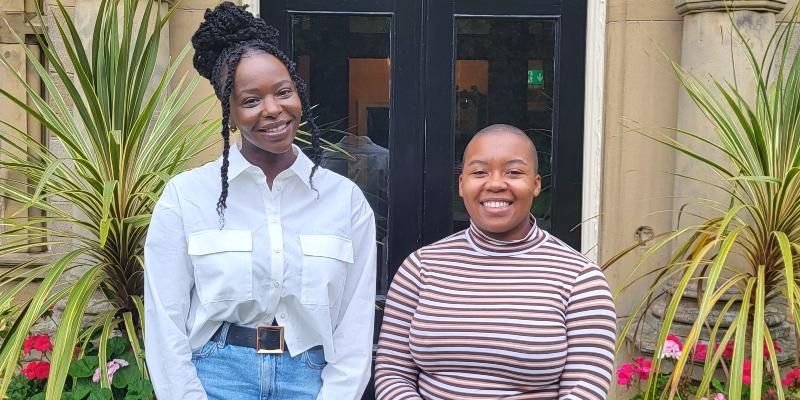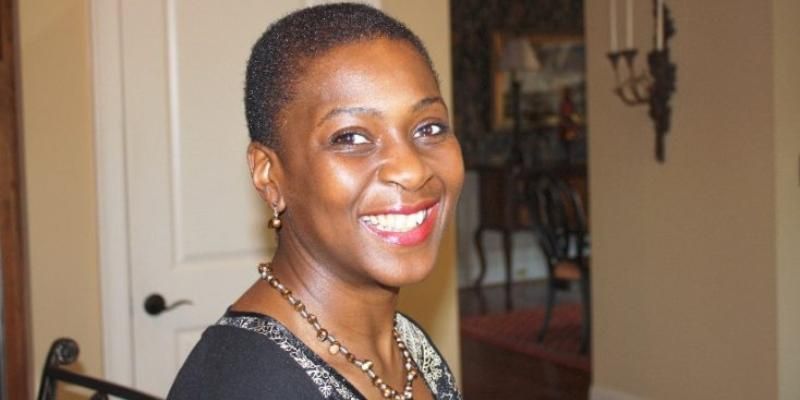
Almost 500 women have benefitted from a University of Leeds-run project to boost the careers of Black, Asian and minority ethnic students.
Generation Delta, a four-year programme partly funded by Research England and the Office for Students, provides training and advice to help participants overcome barriers that can hinder the progress of postgraduate students.
It was led by six female professors – all members of the Black Female Professors Forum – including Iyiola Solanke, Visiting Professor at the University of Leeds, which hosted the programme.
Participants included Iman Federico-Awi, who is just about to enter the third year of her PhD in the School of Sociology and Social Policy at the University of Leeds.
Iman, who was a Generation Delta champion, said: “It has been really helpful in connecting me with people and creating a network of valuable contacts.
“It is a safe space and there are times in your life when you don’t feel you are in a safe space. It’s very welcoming and it’s nice to have your voice heard.”
Iman is self-funded so found the information about where to get funding particularly useful.
She also took part in the ‘Brave Space’ mentoring project and enjoyed the 1:1 sessions with one of the programme leaders, Professor Uma Kambhampati from the University of Reading. “It was great to have mentoring with someone who knew where I was coming from,” said Iman.
Zhané Murrell-Smith, is going into her final year of PhD studies in the Faculty of Biological Sciences at the University of Leeds.
I felt energised to be in a space where people looked like me. It’s also very empowering to have something directed specifically at you and your academic career.
Zhané said: “I have worked in the field of sports science which is very male- dominated so it was quite a different environment on this programme.
“I felt energised to be in a space where people looked like me.
“It’s also very empowering to have something directed specifically at you and your academic career.”
Professor Luke Windsor, Dean of the Doctoral College at the University of Leeds, said: “As an institution we recognise that we need to reflect the communities we serve and we are very keen for this work to continue.”
He was involved with the programme from its inception and was keen to lay the foundations for a long-term increase in minoritised students accessing and completing PhD studies and going on to forge careers in academia and beyond.
The purpose of the programme
Professor Iyiola Solanke founded the Black Professors Forum and also the Temple Women’s Forum North to promote engagement between legal professionals and students in and around Yorkshire.

She said: “Many higher education institutions do not reflect the make-up of the population. More needed to be done and this programme aimed to address that.
“Postgraduate students from backgrounds where academia was a bit of a mystery, needed help right from the start,” she said.
They have held workshops over the past four years to help people apply for places, find funding and the right supervisor to help them on their journey.
The next objective was to help these students pass their exams, complete the programme and transition to an academic post.
The most important advice I can give to a BAME woman is – be passionate about your research. It’s always a difficult journey doing a PhD but can be so worthwhile.
“Often postgraduate students don’t see themselves becoming academics and don’t know how to prepare for it,” said Professor Solanke.
“They can suffer from imposter syndrome and if you don’t tackle these feelings, they get worse and then the attrition rate for them dropping out of postgraduate study increases because they get discouraged. You need specific advice for an academic career and they just don’t get it.”
The programme’s legacy
Around 500 women have benefitted from the free workshops, organised all over the country.
Professor Solanke added: “It’s been fabulous and has gone much better than I ever expected. It has been great to see the change in people’s lives. It has boosted their confidence and hopefully that will translate into seeing a lot more BAME professors in the future.”
“The most important advice I can give to a BAME woman is – be passionate about your research. It’s always a difficult journey doing a PhD but can be so worthwhile.”
The programme formally ends in January 2026 but the final workshop and conference were held in September 2025 at Weetwood Hall, Leeds.
On addressing the conference, Professor Solanke said: “Lots of changes are taking place but we want to encourage and inspire you to continue your journey and contribute your brilliance, insight and inspiration.”
She said they are now creating legacy materials and training resources in a determined effort to continue to mentor women.
The other female professors are: Professor Donna Chambers from Northumbria University and the University of Sunderland; Professor Uma Kambhampati from the University of Reading; Professor Shaofeng Liu from the University of Plymouth; Professor Amaka Offiah from the University of Sheffield; and Professor Farzana Shain from Goldsmiths, University of London.
Further information
For further information contact Jane Lewis by emailing j.lewis3@leeds.ac.uk or the pressoffice@leeds.ac.uk